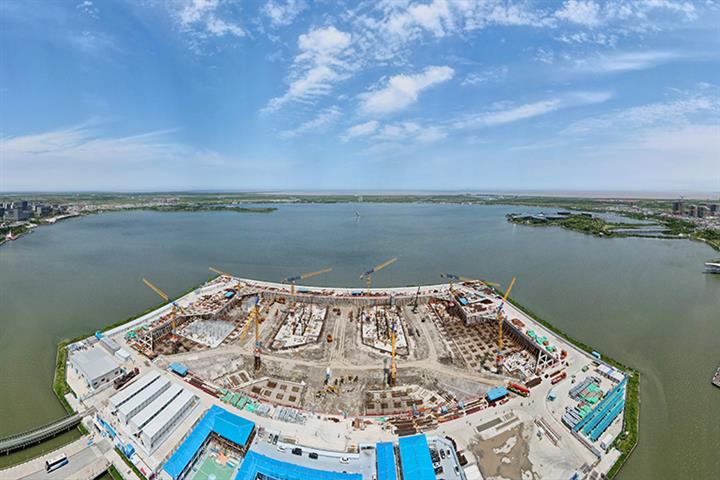 Shanghai Expedites Building of Five Outlying Cities, Eyes More Corporate HQs
Shanghai Expedites Building of Five Outlying Cities, Eyes More Corporate HQs(Yicai Global) July 7 -- Shanghai plans to accelerate the construction of five new outlying cities by channeling more resources into its suburban districts, including more support for companies to set up headquarters as well as research and development centers there, local authorities announced yesterday.
In last year’s government work report, Shanghai proposed to optimize its urban spatial pattern by building five new cities in the suburbs of Jiading, Qingpu, Songjiang, Fengxian and Nanhui.
During the 14th Five-Year Plan, which runs through 2025, each of these new cities will introduce at least two municipal state-owned enterprise headquarters, according to a plan unveiled yesterday.
In addition, the five new areas will also attract about 100 private companies' headquarters, accelerate the introduction of multinational firms, and encourage foreign businesses to set up R&D centers and other functional entities.
The city will also encourage the Shanghai branch of the Chinese Academy of Sciences, the Shanghai Academy of Science & Technology, and other local research institutes to cooperate with the five new cities in building at least three national or municipal innovation platforms and facilities in each of them during the five-year period.
For example, Qingpu, a western Shanghai suburban district, announced yesterday that it will build the Fudan International Integrated Innovation Center, with the under-construction Qingpu Campus of Fudan University and tech giant Huawei Technology’s R&D base as the core to achieve the integrated development of industry and education.
When the Qingpu campus is ready, it will boast innovation centers, including for integrated circuits, biomedicine, intelligent robots and advanced manufacturing, as well as cutting-edge research platforms for communication engineering, aerospace, and complex systems engineering and the like, according to Wu Libo, director of Fudan’s development and planning office.
Last year, the five new cities attracted 50 corporate headquarters and 62 R&D centers. Moreover, they have launched construction of livelihood and transport projects with a total investment of more than CNY100 billion (USD1.5 billion), according to the government.
Editors: Dou Shicong, Peter Thomas